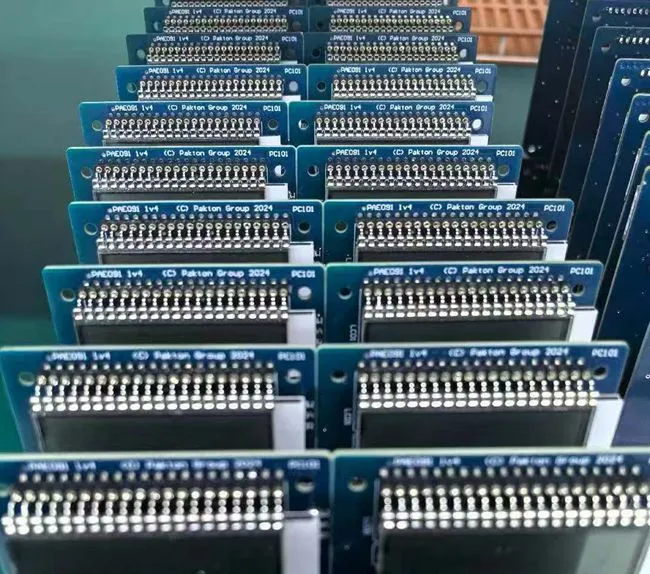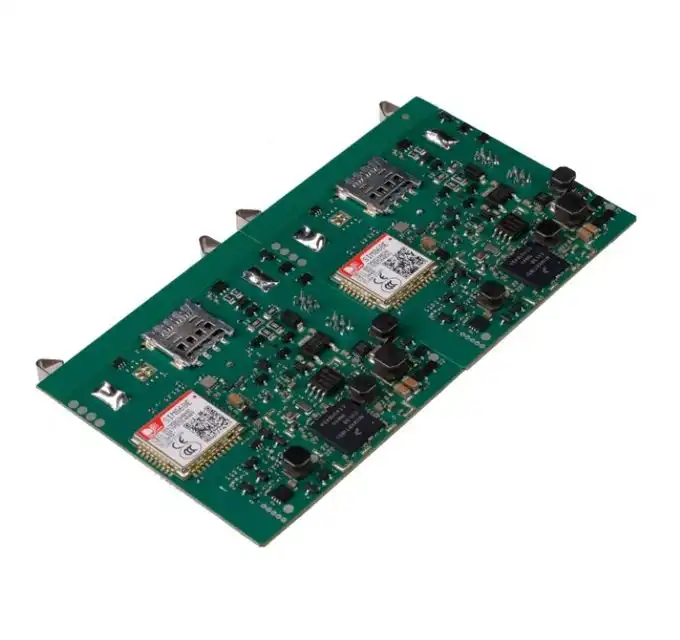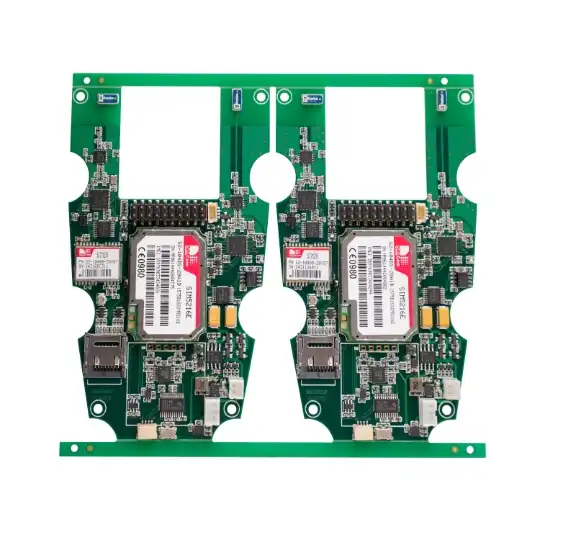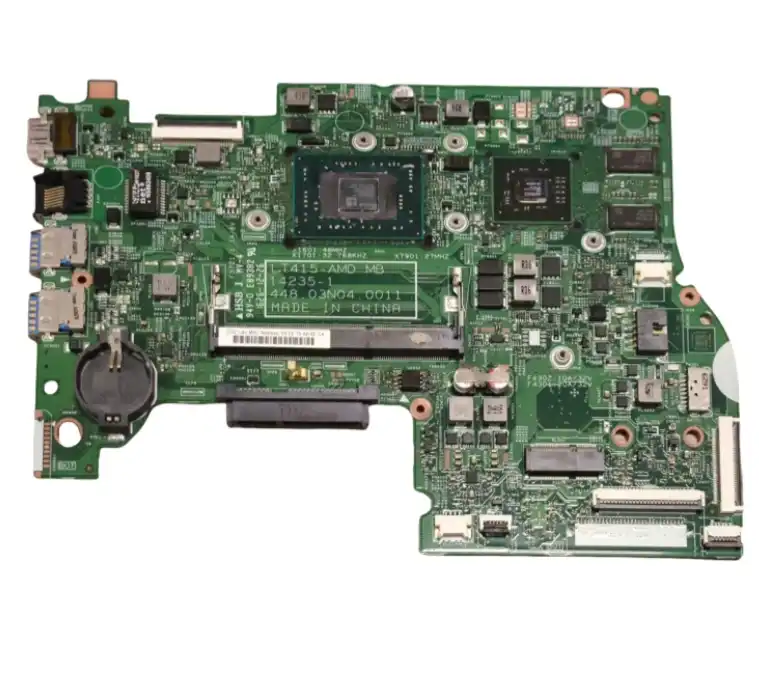Optimizing Design and Pre-Production Processes for Large Batch PCB Manufacturing
The foundation for high-yield large batch PCB manufacturing is laid well before the first board enters production. Optimizing design and pre-production processes is crucial for ensuring smooth, efficient, and high-quality output at scale. This phase sets the stage for successful assembly, testing, and ultimately, a higher yield rate.
Implementing Design for Manufacturability (DFM) Principles
Design for Manufacturability is a critical approach in large batch PCB production. It involves creating PCB designs that are not only functionally correct but also optimized for the manufacturing process. DFM principles help identify and eliminate potential issues that could lead to defects or reduced yield during mass production.
Key DFM considerations for large batch PCB manufacturing include:
- Optimizing trace widths and spacing to ensure reliable connections and reduce the risk of shorts
- Careful placement of components to facilitate efficient SMT assembly and minimize the risk of solder bridges
- Designing for optimal thermal management to prevent overheating issues in densely packed multilayer boards
- Incorporating testability features to enable comprehensive in-circuit and functional testing
By adhering to DFM principles, manufacturers can significantly reduce the likelihood of defects and improve overall yield in large batch production scenarios.
Thorough Design Review and Simulation
Before moving to production, conducting a comprehensive design review and simulation process is essential. This step helps identify potential issues that may not be apparent in the initial design phase but could cause problems during large-scale manufacturing.
Advanced simulation tools allow engineers to:
- Analyze signal integrity and power distribution across the board
- Simulate thermal behavior under various operating conditions
- Verify electromagnetic compatibility (EMC) to ensure the PCB meets regulatory standards
- Identify areas of potential mechanical stress that could lead to board failure
By addressing these issues early in the design phase, manufacturers can avoid costly rework and improve yield rates in large batch production.
Prototype Testing and Refinement
While simulation is valuable, nothing beats real-world testing. Producing and thoroughly testing prototype boards is a crucial step in preparing for large batch PCB manufacturing. This process allows manufacturers to:
- Verify the design's functionality under actual operating conditions
- Identify any unforeseen issues that may not have been caught during simulation
- Refine assembly processes and identify potential bottlenecks in production
- Validate test procedures and equipment that will be used in full-scale production
The insights gained from prototype testing can be invaluable in fine-tuning the design and manufacturing processes, ultimately leading to higher yields when scaling up to large batch production.
Advanced Manufacturing Techniques for High-Yield Large Batch PCB Production
Once the design is optimized and validated, the focus shifts to the manufacturing process itself. Employing advanced techniques and technologies is crucial for maintaining high yields in large batch PCB production. These methods ensure consistency, precision, and efficiency throughout the manufacturing process.
High-Precision SMT Assembly
Surface Mount Technology (SMT) is the backbone of modern PCB assembly, especially for large batch production. Investing in state-of-the-art SMT equipment is essential for achieving high yields. Advanced SMT machines offer:
- Exceptional placement accuracy, reducing the risk of misaligned components
- High-speed operation, enabling efficient large-scale production
- Advanced vision systems for real-time component verification
- Flexible programming options to accommodate various board designs
By utilizing high-precision SMT assembly, manufacturers can significantly reduce defects related to component placement and soldering, two common sources of yield loss in PCB production.
Automated Optical Inspection (AOI) and X-ray Inspection
Quality control is paramount in large batch PCB manufacturing, and automated inspection systems play a crucial role. AOI and X-ray inspection technologies offer rapid, accurate detection of a wide range of defects:
- AOI systems can quickly identify issues such as missing components, incorrect polarities, and solder joint problems
- X-ray inspection allows for the examination of hidden solder joints, particularly in BGA and other complex packages
- Both technologies can be integrated into the production line for real-time defect detection and process adjustment
By implementing these advanced inspection techniques, manufacturers can catch and correct defects early in the production process, preventing costly rework and improving overall yield.
Statistical Process Control (SPC) and Data Analytics
In large batch PCB manufacturing, maintaining consistent quality across thousands of boards is challenging. Statistical Process Control (SPC) and advanced data analytics tools help manufacturers monitor and optimize their processes in real-time. These techniques enable:
- Continuous monitoring of critical process parameters
- Early detection of process drift or anomalies
- Data-driven decision making for process improvements
- Predictive maintenance of manufacturing equipment
By leveraging SPC and data analytics, manufacturers can proactively address potential issues before they impact yield, ensuring consistent quality across large production runs.
Post-Production Strategies to Enhance Yield in Large Batch PCB Manufacturing
The journey to high yield doesn't end when the PCBs come off the production line. Post-production strategies play a crucial role in ensuring the quality and reliability of large batch PCB manufacturing. These final steps can significantly impact overall yield and customer satisfaction.
Comprehensive Functional Testing
While in-line inspection catches many defects, functional testing is essential to verify that each PCB performs as intended. For large batch production, automated test equipment (ATE) is invaluable. Advanced functional testing strategies include:
- In-Circuit Testing (ICT) to verify individual component functionality
- Boundary Scan Testing for complex digital circuits
- Environmental stress screening to identify potential reliability issues
- Custom functional tests tailored to the specific application of the PCB
By implementing comprehensive functional testing, manufacturers can catch any remaining defects that might have slipped through earlier inspection stages, ensuring that only fully functional boards are shipped to customers.
Failure Analysis and Continuous Improvement
In any large-scale manufacturing process, some defects are inevitable. However, each failure presents an opportunity for improvement. A robust failure analysis process is crucial for long-term yield enhancement. This involves:
- Detailed examination of failed boards to identify root causes
- Cross-functional team reviews to develop corrective actions
- Implementation of preventive measures to avoid similar issues in future production runs
- Ongoing monitoring to verify the effectiveness of implemented changes
By treating each failure as a learning opportunity, manufacturers can continuously refine their processes, leading to steadily improving yields over time.
Supply Chain Management and Component Quality
In large batch PCB manufacturing, the quality of the final product is only as good as its components. Effective supply chain management is crucial for maintaining high yields. Key strategies include:
- Rigorous supplier qualification and ongoing performance monitoring
- Implementing incoming quality control procedures for all components
- Maintaining proper storage and handling procedures to prevent component degradation
- Developing contingency plans for supply chain disruptions
By ensuring a steady supply of high-quality components, manufacturers can avoid yield losses due to component-related issues and maintain consistent production quality.
Conclusion
Improving yield in large batch PCB manufacturing is a multifaceted challenge that requires attention to detail at every stage of the production process. From initial design optimization to advanced manufacturing techniques and comprehensive post-production strategies, each step plays a crucial role in ensuring high-quality output at scale. By implementing the strategies outlined in this article, PCB manufacturers and suppliers can significantly enhance their yield rates, reduce waste, and improve overall efficiency in large batch production. As technology continues to evolve, staying at the forefront of PCB manufacturing techniques will be essential for maintaining competitive edge and meeting the ever-increasing demands of the electronics industry.
FAQ
What is the typical yield rate for large batch PCB manufacturing?
Yield rates can vary depending on the complexity of the PCB and the manufacturing process, but industry standards aim for 95-99% yield in large batch production.
How does automated optical inspection (AOI) improve PCB yield?
AOI systems can quickly detect visual defects such as missing components, solder issues, and incorrect placements, allowing for immediate correction and preventing defective boards from progressing further in the production process.
What role does design for manufacturability (DFM) play in improving yield?
DFM principles help optimize PCB designs for the manufacturing process, reducing the likelihood of defects and improving overall producibility, which directly contributes to higher yield rates.
Integrated PCBA Services: Your One-Stop Solution for High-Yield PCB Manufacturing | Ring PCB
At Ring PCB, we offer comprehensive PCBA services that encompass every aspect of PCB production, from design optimization to final testing. Our state-of-the-art facilities and expert engineering team ensure high-yield, high-quality PCB manufacturing for even the most complex projects. With our one-stop turnkey solutions, we handle everything from PCB fabrication and component sourcing to SMT assembly and rigorous quality control. Experience the difference of working with a leading PCB manufacturer committed to excellence. Contact us at [email protected] to discuss your large batch PCB manufacturing needs.
References
1. Smith, J. (2022). "Advanced Techniques in Large-Scale PCB Manufacturing." Journal of Electronics Manufacturing, 15(3), 123-145.
2. Johnson, R., & Lee, S. (2021). "Yield Optimization Strategies for High-Volume PCB Production." IEEE Transactions on Electronics Packaging Manufacturing, 44(2), 78-92.
3. Brown, A. (2023). "The Impact of Industry 4.0 on PCB Manufacturing Yields." International Journal of Industrial Engineering, 18(4), 201-218.
4. Chen, X., et al. (2022). "Statistical Process Control in Modern PCB Assembly Lines." Quality and Reliability Engineering International, 38(1), 56-70.
5. Wilson, E. (2021). "Design for Manufacturability: Maximizing Yield in PCB Production." Proceedings of the International Symposium on Circuit Design and Manufacturing, 112-125.






